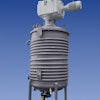
The months long government-imposed total lockdown to halt the spread of COVID-19 in the Philippines has allowed online pet shops to flourish, but it has also attracted the unwanted attention of the tax man.
Online pet shops have seen brisk business during the last three months as more Filipinos turn to online platforms to stock up on essential goods like pet food. The pandemic flung the e-commerce door wide open and some who rushed in put up online shops only on Facebook or Instagram while some existing e-commerce sites simply added a pet section to get in the game.
Philippine agencies add stipulations to online commerce
As the shift toward online sales continues to accelerate even as lockdown measures slowly ease up, the Department of Finance (DOF) and the Bureau of Internal Revenue (BIR) have decided to put the brakes on it by setting a July 31, 2020, deadline for all online sellers to register and pay taxes to be included in the formal economy.
Small online business operators were quick to protest, arguing that they are just trying to earn extra income or only doing pop-up online shops to support themselves at a time when the unemployment rate is high and government aid is wanting. Several lawmakers also hit the tax agency for making it harder for people to cope even as they try to be entrepreneurial to ride out the crisis.
Of course, the new tax rule for online businesses won't affect those that have secured their government business papers from the start.
“We wanted to start everything right so we began by getting permits from the Bureau of Animals Industry and we are also fully registered with the BIR,” said an official from Real Nature Pet Food Philippines. “But we are aware that there are many online resellers of pet food that will be affected by this new rule.”
Government determined to enforce new policy
Despite getting some pushback on their tax directive for online businesses, the government tax agencies said they are still determined to enforce it. Officials said Singapore and Malaysia have already added some digital transactions in their sales tax bases.
According to GlobalWebIndex, of the estimated 69 million internet users in the Philippines as of September 2019, about 75% or almost 52 million have already shopped online. In terms of revenue, Statista projected the Philippines' e-commerce market value to reach US$3.37 billion in 2020.

















